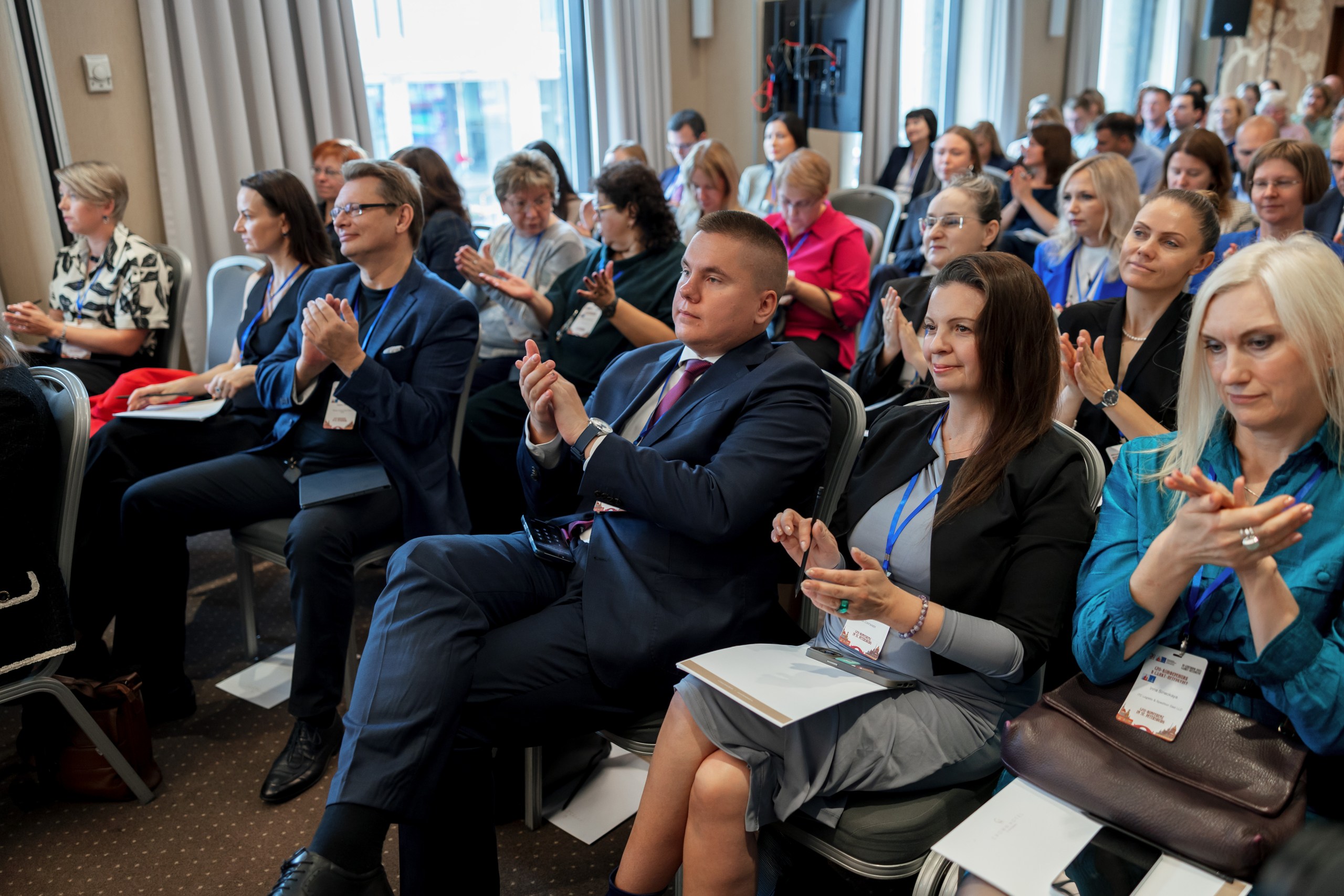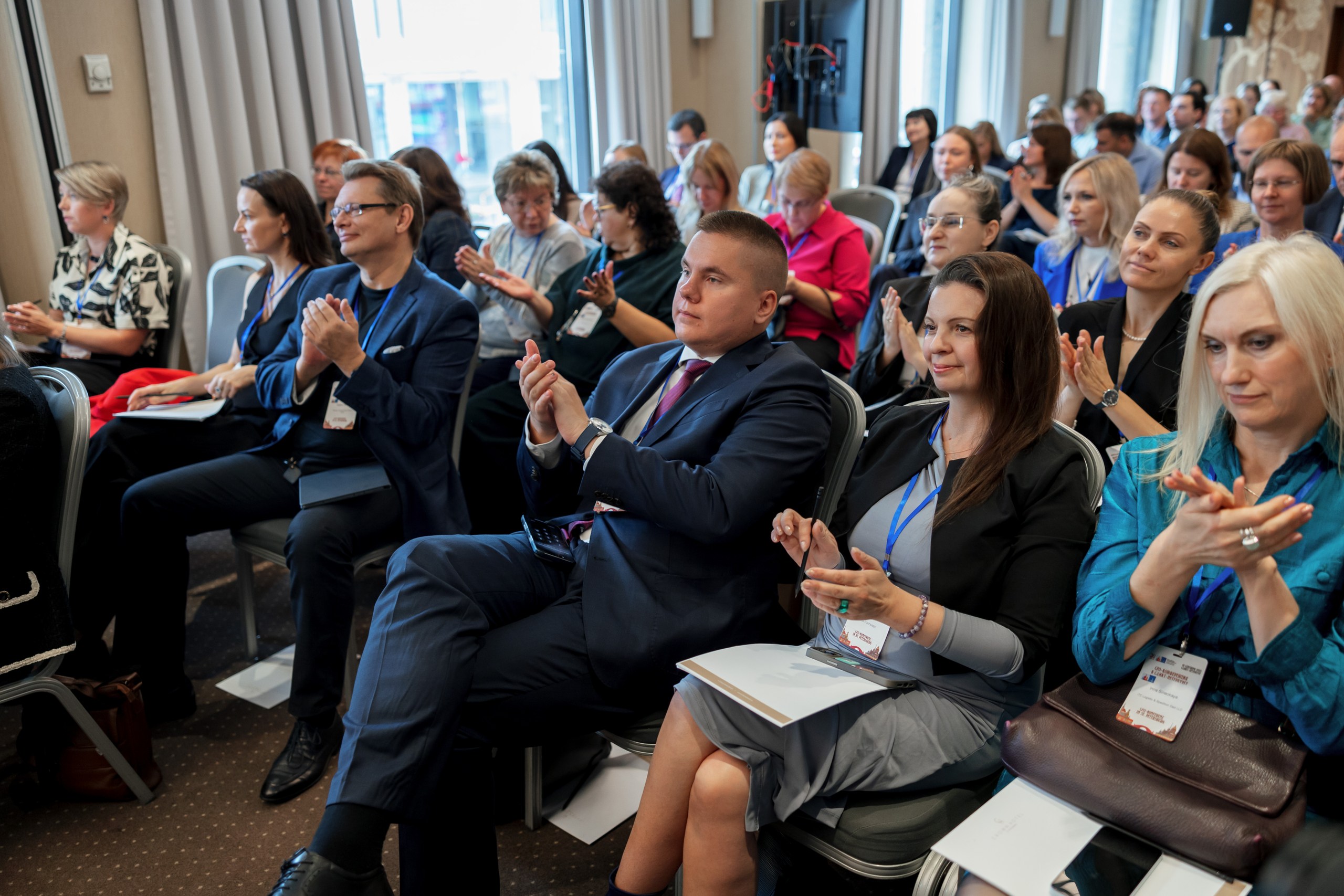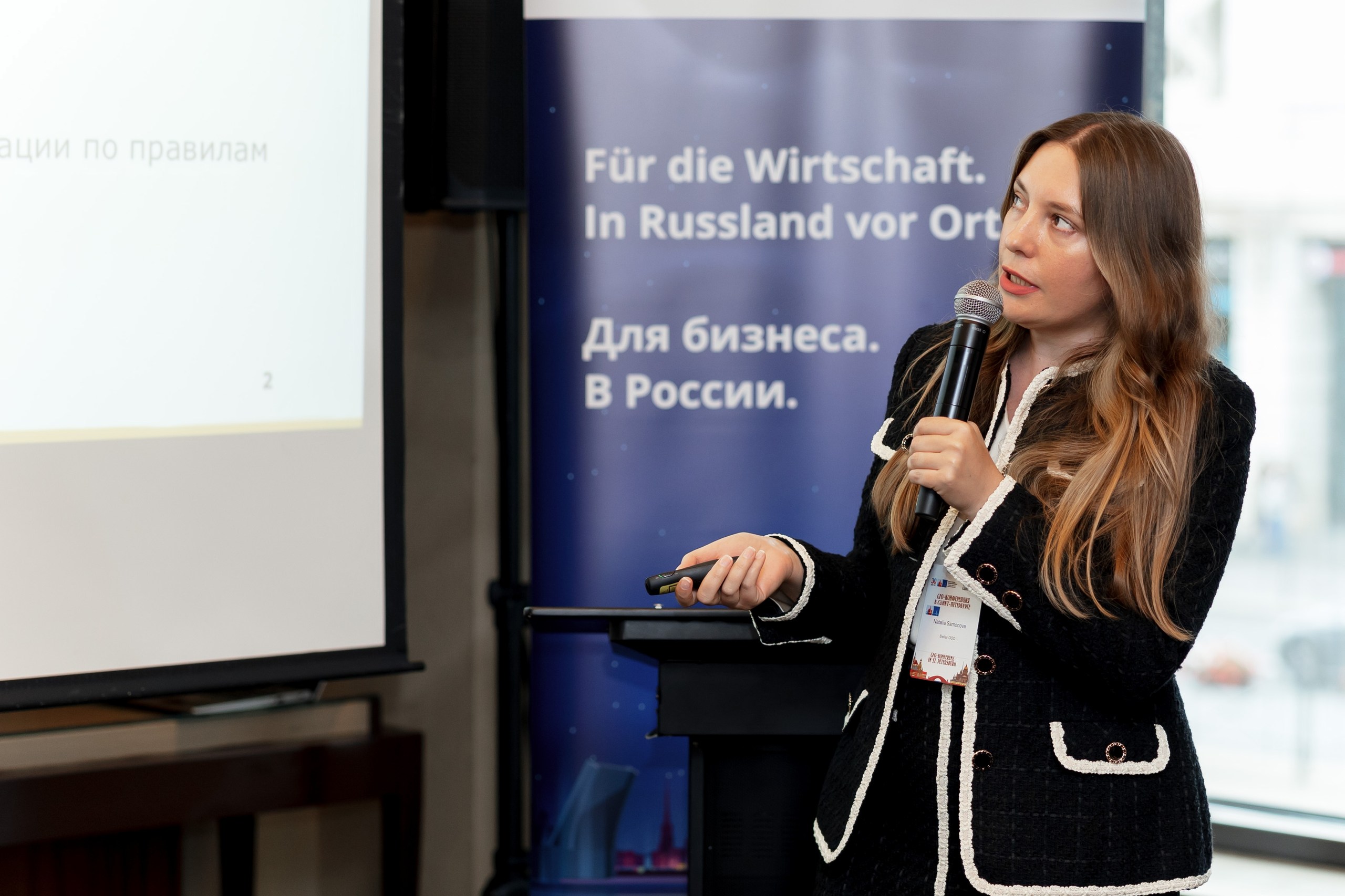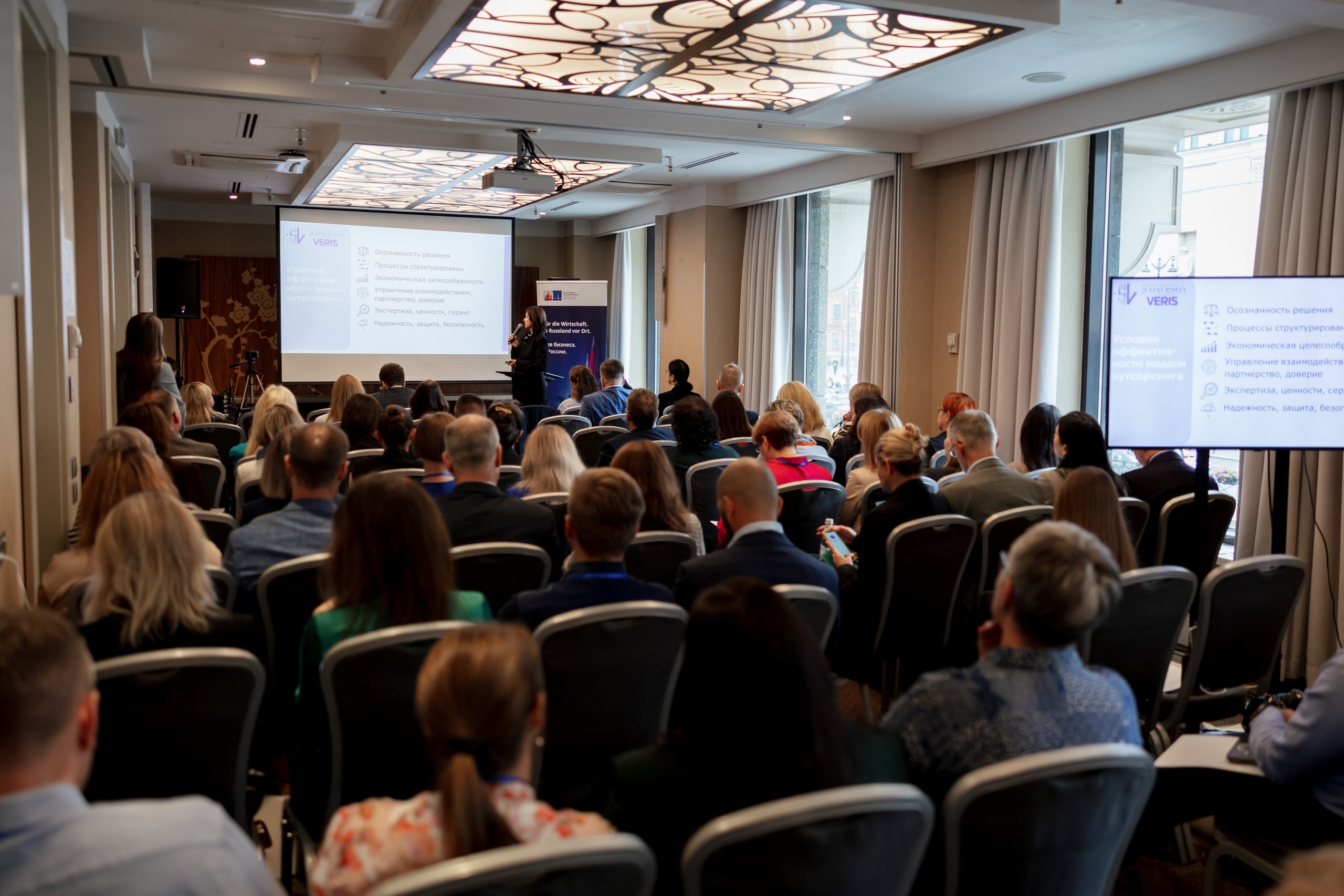Category: News
Environmental Fee: what changed since January 1, 2026 and what business should expect
Dear colleagues,
Last autumn we provided you with the overview of the current regulation and upcoming changes regarding environmental fee reporting and payment terms – more information can be found here.
As a reminder, one of the changes we recommend monitoring was the entry into force since 01.01.2026 (Article 24.5 of the Federal Law No. 89-FZ dated June 24, 1998 “On Environmental Fee”) of the obligation for importers to ensure the recycling of waste from the use of goods:
- for imports from EAEU countries – from the day the goods are recognized
- for imports from countries outside the EAEU – before the day of release by the customs authority for domestic consumption.
Good news: on December 31, 2025 the Federal Law No. 495-FZ dated December 28, 2025 “On Amending Article 29¹ of the Federal Law “On Production and Consumption Waste” and Certain Legislative Acts of the Russian Federation” came into force. This law postponed the enactment of the new rules until 01.01.2028.
More details of the changes
The adopted law alters the timeline for the environmental fee reform and implemented a key proposal from the draft law by the Russian Ministry of Natural Resources published on 20.10.2025 (which we covered in our previous overview): the transitional provisions for importers from countries outside the EAEU have been extended by two years – until January 1, 2028 (instead of the originally set date of January 1, 2026).
Therefore, this year the submission of reports and payment of the environmental fee should be carried out according to the usual terms.
However, the adopted law did not implement all proposals included in earlier versions of the draft.
In this regard, we recommend continuing to monitor potential changes amidst the ongoing discussions between the regulator, business and relevant ministries.
What needs to be done in any case? Reporting and terms for the environmental fee payment for 2025.
The Federal Service for Supervision of Natural Resources (Rosprirodnadzor) has reminded of the terms for submitting environmental fee reports and making payments for 2025.
By April 15, 2026 manufacturers and importers of goods and packaging subject to recycling are to submit their environmental fee reports to Rosprirodnadzor and pay the environmental fee for 2025.
We would like to remind you that the List of goods and packaging, the waste from which is subject to recycling, was approved by the Russian Government Decree No. 2414 dated December 29, 2023.
Furthermore, it is important to note that the environmental fee is not included in the Unified Tax Payment (UTP) and must be paid separately.
List of required reports:
- Report on the weight of goods and packaging (form of the Appendix 1 to the Rules approved by the Russian Government Decree No. 741 dated May 31, 2024).
- Report on self-executed recycling (form of the Appendix 1 to the Rules approved by the Russian Government Decree No. 742 dated May 31, 2024). This report is submitted only if the company performs the recycling itself.
- Calculation of the environmental fee amount (form of the Appendix 1 to the Rules approved by the Russian Government Decree No. 1990 dated December 30, 2024).
All listed forms are to be submitted in electronic form. The authority recommends using the personal account of natural resource user for this purpose.
We will be glad to answer your questions.
Submit a request
Other news

23.12.2025
Dear colleagues, Please accept our sincere congratulations on the upcoming New Year and Christmas!

06.11.2025
Environmental fee in 2025-2027: what awaits business and how to avoid fines
Dear colleagues, Please accept our sincere congratulations on the upcoming New Year and Christmas!
Dear colleagues,
Please accept our sincere congratulations on the upcoming New Year and Christmas!
May the coming year bring new achievements, harmony and professional success!
We wish you and your loved ones happiness, health and prosperity!
Thank you for your trust, support, and productive cooperation!
With best wishes,
Your swilar team

Other news

10.02.2026
Environmental Fee: what changed since January 1, 2026 and what business should expect

02.10.2025
Swilar expert spoke at the CFO Conference in St. Petersburg on tax optimisation
At the end of September, St. Petersburg hosted a CFO Conference that brought together finance directors and ..
Environmental fee in 2025-2027: what awaits business and how to avoid fines
Dear colleagues,
In response to numerous inquiries from companies about the environmental fee and the active changes in this area expected in 2025-2026, we have prepared an overview of the topic to help you understand some key aspects.
The environmental fee and related reporting represent a system that reflects the responsibility placed on manufacturers and importers to consider the fate of their goods and packaging after they have served their term. The system is becoming more complex, the rates are increasing and control is tightening. We examine the upcoming changes and their implications for companies.
Who is liable?
The following entities are required to pay the environmental fee and submit reporting:
- Manufacturers of goods and packaging released within the territory of the Russian Federation.
- Importers bringing goods and packaging from abroad.
- Disposal companies, if they take on the responsibility of meeting disposal standards.
Important: the obligation arises for the entity that first releases the goods or packaging on the market in the Russian Federation, provided that the goods or packaging are included in the relevant List. The environmental fee is calculated considering the standards.
What changes take effect in 2025
1. Significant rate increase
The Government has approved new base rates for the environmental fee for 2025–2027 (Resolution No. 1041 dated August 1, 2024). Compared to 2024, the rates will increase by 15% in 2025, with further planned increases in subsequent years.
- Example for tires and rubber:
- 2025 — 10,310 RUB/tonne
- 2026 — 11,135 RUB/tonne
- 2027 — 11,580 RUB/tonne
- Example for textile products:
- 2025 — 18,750 RUB/tonne
- 2026 — 20,250 RUB/tonne
- 2027 — 21,060 RUB/tonne
Furthermore, the Ministry of Natural Resources has already prepared a new draft resolution that starting from 2026 could introduce even higher rates (e.g., for textiles — up to 89,184 RUB/tonne). This indicates a sustained trend of increasing environmental compliance costs.
How to calculate? In its inquiries the Federal Service for Supervision of Natural Resources refers to data from customs declarations. These declarations contain information about the goods, including weight, codes and volumes. All this data is automatically compared.
Data required for calculating the environmental fee:
- Manufacturers of goods – a list of goods indicating the code in accordance with the Russian Classification of Products by Economic Activities (OKPD2), product name, the weight of all manufactured products.
- Importers – the customs declaration which specifies the HS code of the imported goods, the packaging code in most cases and the gross and net weights.
2. Tightening of the rules for importers from 2026.
From 1 September 2024 to 31 December 2025 a special experimental regime will apply to certain types of goods: reporting and payment of environmental fee should be completed before the date of their release by the customs authorities for domestic consumption.
The current version of the law stipulates that upon completion of the experiment (from 01.01.2026), these rules will become mandatory for all importers (the Article 24.5. Environmental Fee of the Federal Law No. 89-FZ dated 24.06.1998).
The obligation to ensure the recycling of waste from the use of goods will arise for the importer of goods:
- for imports from EAEU countries – from the day the goods are recognized.
- for imports from countries outside the EAEU – before the day of release by the customs authority for domestic consumption!
An alternative may be to submit a notification of intent to dispose of the waste independently or to provide a bank guarantee or surety agreement from the disposal company for the amount of the fee (the term of the guarantee or surety agreement shall not be earlier than 15 October of the following year).
The good news is that legislators are considering extending the experimental regime – see the draft of the Federal Law (prepared by the Russian Ministry of Natural Resources). The ministry has proposed extending the experiment on the payment of environmental fees prior to the submission of customs declarations for another year, as well as easing the conditions for paying the fees prior to the submission of declarations (within 90 days after the release of goods).
The bill was submitted on 20 October 2025 – we recommend monitoring the progress of this initiative.
Liability: risks and fines
The risks should not be underestimated. The Federal Service for Supervision of Natural Resources actively employs a system of cross-checks, comparing data from companies’ reports with information from customs declarations and other state databases.
The fines for violations are substantial:
- For failure to submit or late submission of reports: for legal entities — from 70,000 to 150,000 RUB.
- For inaccurate data in reports: the fine for legal entities is twice the amount of the fee (but not less than 250,000 RUB).
- For missing payment deadlines or non-payment of the fee: the fine for legal entities is three times the unpaid amount (not less than 500,000 RUB).
Who is exempt from payment?
Payment is not required, but reporting is still mandatory if:
- The goods are for export.
- They are used as raw materials or components for manufacturing other goods.
- The recycling target has already been met (independently or through an accredited recycling operator).
Manufacturers and importers who recycle their products are subject to special statistical waste management reporting. This is the annual form 2-TP (waste).
Practical recommendations for business
- Audit. Verify whether your goods and packaging are included in the current list (Government Resolution No. 2414 dated December 29, 2023).
- Be proactive. If you receive a letter from The Federal Service for Supervision of Natural Resources, it is advisable to comply with the requirement within the specified deadline (submit the report, pay the fee) and only then challenge their position. A delay results in an automatic fine.
- Remember the deadlines for 2025:
- Submit reports — by April 1, 2026.
- Pay the environmental fee — by April 15, 2026.
Important: If April 15 falls on a weekend or holiday, the fee should be paid before this date. The deadline is not extended to the next business day.
Conclusion
The environmental fee is no longer a formality but have become a significant expense and a serious regulatory risk for businesses. Rising rates and tighter controls signal that it is time to build a transparent system of environmental reporting and waste disposal. Those who do so now will not only avoid multimillion fines, but also lay the foundation for sustainable development in the new economic reality.
Submit a request
Other news

10.02.2026
Environmental Fee: what changed since January 1, 2026 and what business should expect

23.12.2025
Dear colleagues, Please accept our sincere congratulations on the upcoming New Year and Christmas!
Swilar expert spoke at the CFO Conference in St. Petersburg on tax optimisation
At the end of September, St. Petersburg hosted a CFO Conference that brought together finance directors and senior executives to discuss current issues in financial management. Swilar was represented by Natalia Samonova, Head of Controlling Projects, who delivered a talk on tax optimisation and government support for business.
Natalia covered lawful methods to reduce the tax burden and leverage state support measures, highlighted typical mistakes companies make when modelling tax expenses, and shared practical optimisation techniques, with special attention to criteria for choosing an effective tax regime.
A separate section of the presentation focused on opportunities offered by Special Economic Zones (SEZs) and Territories of Advanced Development (TADs). The expert outlined available tax incentives, entry conditions, and key pitfalls to consider.
In conclusion, Natalia Samonova emphasized there is no one-size-fits-all solution in tax optimisation: “An effective structure is the one that best matches a company’s specific goals and parameters.” She demonstrated approaches to assessing efficiency with illustrative calculations.
Swilar has many years of expertise in financial advisory and cost-management systems, including practical experience with SEZs and TADs. If you need assistance in selecting the optimal tax regime or evaluating the potential of government support for your business, we will be glad to advise you.



Other news

10.02.2026
Environmental Fee: what changed since January 1, 2026 and what business should expect

23.12.2025
Dear colleagues, Please accept our sincere congratulations on the upcoming New Year and Christmas!
Current changes in labor law
Dear Colleagues,
in our new article, we would like to inform you about noteworthy changes in the regulation of labor relations with company employees.
We have previously touched upon the topic of these changes in our informational bulletin
New Regulation on Business Trips
As of September 1, 2025, the new Regulation on the Specifics of Assigning Employees on Business Trips, approved by Decree of the Government of the Russian Federation No. 501 dated April 16, 2025, comes into force. On this date, the previous regulation approved by Decree of the Government of the Russian Federation No. 749 dated October 13, 2008, also ceases to be effective.
The new decree does not introduce radical changes in the processing and payment of business trips; it only clarifies a number of previously existing provisions.
However, employers need to update their internal company Regulation on Business Trips, as well as remove references to Government Decree No. 749 and add references to the new Government Decree No. 501.
Within the framework of the introduced changes, a clarified definition of “travel documents” is provided: now they include not only tickets but also other documents confirming the travel route (cash receipts, waybills, etc.).
Furthermore, to reimburse travel expenses, it will be sufficient to simply notify the company executive about them. The employer must reimburse the employee for expenses incurred “with the permission or knowledge of” the head of the organization, meaning expenses can be either pre-approved by the executive or simply reported to the executive without obtaining such prior approval.
Changes in Employee Bonus Conditions
Also effective from September 1, 2025, are changes to Article 135 of the Labor Code of the Russian Federation regarding the establishment of employee bonus conditions.
The new amendments oblige companies to clearly specify all elements of the bonus system in their internal documents (local regulations): types, amounts, timing, grounds, and conditions for bonus payments.
Employers need to promptly adjust their internal bonus documents (Regulation on Employee Bonuses) to comply with the new requirements, if the specified elements of the bonus system were not included or were not fully included therein.
In particular, the following must be clearly defined:
– Categories of incentive payments;
– Criteria for their accrual, frequency, as well as reasons and requirements for their provision to employees, including assessment based on parameters such as productivity, length of service in the company, and performance;
– The impact of disciplinary measures on the right to receive bonus payments (if the employer wishes such an impact);
– The exact method for calculating monetary incentives (a fixed amount, a percentage of the salary or completed work volume, a coefficient, etc.).
It should be separately noted that the company’s internal documents must now clearly establish the criteria for reducing the amount or depriving employees of bonuses (dis-bonusing), an exhaustive list of grounds, and a clear algorithm for reducing payments.
Importantly, a reduction in bonus for a disciplinary offense must not exceed 20% of the employee’s monthly salary and must only apply to payments for the period during which the disciplinary sanction is in effect.
The use of vague formulations such as “at the discretion of management” or “depending on the employer’s discretion” in dis-bonusing is now prohibited.
This initiative is a consequence of the legal position of the Constitutional Court of the Russian Federation formulated back in 2023. The Constitutional Court recognized that the practice of automatically depriving an employee of incentive payments for the entire duration of a disciplinary sanction is illegitimate and leads to an unjustified reduction in guaranteed earnings.
At the same time, the employer has received the right, but not the obligation, to stipulate in local regulations the provision on the impact of disciplinary sanctions on the amount of employee bonuses, i.e., linking sanctions to a reduction in bonuses remains at the employer’s discretion.
Conclusions: What the Company Needs to Do
1. Review and update the Regulation on Business Trips;
2. Review and update the Regulation on Employee Bonuses.
If necessary, we will be happy to provide additional comments and advise you, as well as review and adjust your company’s internal documents in accordance with the new norms.
Submit a request
Other news

10.02.2026
Environmental Fee: what changed since January 1, 2026 and what business should expect

23.12.2025
Dear colleagues, Please accept our sincere congratulations on the upcoming New Year and Christmas!
Notice of participation in an international group of companies: procedure and deadlines
Dear colleagues,
This is a reminder that the deadline for submitting Notice of Participation in an International Group of Companies (hereinafter, the “IGC”) is August 31, 2025, for groups whose financial year coincides with the calendar year.
Filing the notice is an obligation for Russian organizations and foreign companies that recognize themselves as tax residents of Russia, which are part of an IGC and meet the criteria defined in article 105/16-1 of the RF Tax Code.
Below, we detail the key requirements, deadlines, and content of this notice.
1. The notice must be submitted by all IGC participants that are taxpayers in Russia, except for foreign organizations that only receive income specified in article 309 of the RF Tax Code (e.g., dividends, interest on debt obligations, etc.).
2. Exemption from the obligation
Exemption from the obligation to file the notice is provided in the following cases:


3. Filing deadline
The notice must be submitted electronically no later than eight months from the end of the reporting period of the IGC’s parent company (article 105.16-2 of the RF Tax Code). For example, if the reporting period ends on December 31, the filing deadline is August 31 of the following year.
4. Content of the notice
The notice must include the following information as of the end of the reporting period:






5. Notice format
Notices must be submitted to the tax authorities electronically in XML format, in accordance with the current form established by Order No. ММВ-7-17/124@ of the Federal Tax Service of Russia dated March 6, 2018 (as amended on July 16, 2020) “On Approval of the Format of the Notice of Participation in an International Group of Companies, the Procedure for its Completion and Submission in Electronic Form“.
6. Correcting errors in the notice
If errors or incomplete information are discovered, the taxpayer has the right to submit an amended notice. If this is done before the tax service discovers the inaccuracy, the participant is exempt from liability under article 129.9 of the RF Tax Code.
7. Liability for failure to file the notice
Failure to submit the notice by the deadline or submission of inaccurate information entails a fine of 500,000 rubles for each violation.
Practical recommendations:



Conclusion
Submitting a notice of participation in an IGC is an important responsibility of members of international groups. Compliance with the deadlines and requirements for the content of the notice will help to avoid fines and claims from tax authorities.
Submit a request
Other news

10.02.2026
Environmental Fee: what changed since January 1, 2026 and what business should expect

23.12.2025
Dear colleagues, Please accept our sincere congratulations on the upcoming New Year and Christmas!
Updates in corporate law
Dear colleagues,
the summer of 2025 has been very busy in terms of legislative initiatives and changes. The field of corporate law is no exception.
We would like to inform you about the updates in this area. For your convenience, we have summarized the key updates and innovations for LLCs and JSCs in the overview below.
We have previously written about other important new developments that took effect in September 2024 and March 2025.
Matryoshka companies
Previously, Article 66 of the Civil Code of the Russian Federation, Article 7 of the Federal Law No. 14-FZ dd. February 8, 1998 “On Limited Liability Companies” and Article 10 of the Federal Law No. 208-FZ dd. December 26, 1995 “On Joint-Stock Companies” provided that a company cannot have another business entity consisting of one person as its sole participant/shareholder.
This comprehended a “matryoshka” ownership structure: when one company owns 100% of the shares in the authorized capital of another, the latter owns 100% of the shares in the authorized capital of a third, and so on.
One of the important reasons for this prohibition was to prevent risks to the state due to the nontransparency of such a structure.
It was assumed that the “matryoshka” structure made it difficult to identify the ultimate beneficiary and could be used to evade taxes, hide assets, or avoid liability for obligations. In practice, to get out of this situation, many companies brought in a nominal participant with a minimal share (for example, 1% or less). Having such participant helped get around the legal ban, but when the company’s ownership structure changed, this participant sometimes had to be removed from the list of participants.
On August 1, 2025, amendments to the abovementioned legal acts came into force.
Now, individuals and legal entities can establish “matryoshka” companies and be their sole owners.
The current wording of the law is as follows: a company may have as its sole participant/shareholder another business entity consisting of one person, unless otherwise provided by [federal law].
The ban was lifted to make it easier for businesses to operate under sanctions. Of course, the reduced risk of violations due to the development of law (like liability for subsidiaries and controlled companies, as well as liability of controlling persons) and instruments of state control, including tax authority oversight, also played a role.
According to the explanatory note to the amendments, this type of business structuring can be an effective tool for separating areas of activity, clearly dividing areas of responsibility among management, and creating a more transparent and logical business management system.
It should be noted that the permission to create “matryoshka” structures was captured in the law without any restrictions.
Certification of resolutions passed by the sole shareholder
Also, on August 1, 2025, amendments to the legislation on joint-stock companies regarding the adoption of resolutions by the sole shareholder came into force.
Clause 6 of Article 47 of the Federal Law No. 208-FZ dd. December 26, 1995 “On Joint-Stock Companies” now expressly states that, unless otherwise provided by the company’s articles of association, resolutions of the sole shareholder are not subject to notarization.
Thus, it will no longer be necessary to amend the articles of association to exclude the requirement for such resolutions to be certified in a joint-stock company.
Please note that no such updates have been made with regard to LLCs.
Preemptive right to purchase a share
Article 21 of the Federal Law No. 14-FZ dated February 8, 1998 “On Limited Liability Companies” has been amended with regard to the procedure for exercising the preemptive right to purchase a share in the authorized capital of such company.
The main update is that the relevant rules provided for by law can now be changed in the company’s articles of association.
Previously, a company participant who decided to leave was obliged to first offer his/her share for purchase to other LLC participants. If they refused to purchase the share, the participant was entitled to sell the share to third parties.
Now, with the consent of all participants, the LLC’s articles of association may
- exclude the preemptive right to purchase a share;
- limit the circle of participants who can exercise this right;
- determine the conditions under which participants may exercise their preemptive right to purchase a share or, on the contrary,
be deprived of it.
For example, the possibility of exercising the preemptive right by participants may be linked to the presence or absence of certain circumstances or certain deadline.
At the same time, a prohibition or restriction on the preemptive right to purchase a share that was established by the articles of association personally in relation to the former participant does not apply to the new owner of his/her share.
Amendments to the LLC articles of association regarding the preemptive right to purchase a share may be made by a unanimous resolution of all the participants. To exclude these amendments from the articles of association, at least 2/3 of the participants’ votes are required (unless a larger number of votes is provided for in the articles of association). These resolutions must be notarized.
The amendments shall enter into force on September 01, 2025.
We will be happy to provide additional comments at your request and advise you on this or any other topic.
Submit a request
Other news

10.02.2026
Environmental Fee: what changed since January 1, 2026 and what business should expect

23.12.2025
Dear colleagues, Please accept our sincere congratulations on the upcoming New Year and Christmas!
Tax monitoring: procedure and conditions for switching to it
Dear colleagues,
In 2025, tax monitoring continues to gain popularity: approximately 740 companies from more than 20 industries already use tax monitoring, another 143 companies plan to join the project and a total of more than 13,000 companies comply with the program criteria (according to the portal https://налоговыймониторинг.рф/).
Recently, we have noticed growing interest to this topic in the business community and in this review we have compiled answers to the most frequently asked questions about the procedure and conditions for applying the tax monitoring regime.
Tax monitoring is a special form of tax control, a method of extended information exchange, whereby an organization provides the tax authority with real time access to its accounting and tax records.
What are the advantages of tax monitoring?
- this type of tax control allows you to forget about traditional audits by the Federal Tax Service.
- no penalties or fines if you follow the reasoned opinion.
- you can find out about existing errors and discrepancies identified by the Federal Tax Service in real time.
Methods of information exchange:
- providing access to the organization’s information systems;
- by telecommunication channels through an electronic document management operator (until 01.01.2026, the Article 6 of the Federal Law No. 389-FZ of 31.07.2023);
- providing access to an analytical datamart.
An organization is eligible to apply tax monitoring if it complies with all of the following criteria (clause 3 of the Article 105.26 of the Tax Code):
- the total amount of taxes for the previous year was at least RUB 80 million (VAT, excise taxes, personal income tax, income tax, mineral extraction tax, insurance contributions are added up, except for VAT and excise taxes, which are paid when goods are moved across the customs border of the EAEU);
- income according to accounting (financial statements) for the previous year is at least RUB 800 million;
- the book value of assets as of 31 December of the previous year is at least RUB 800 million.
Important: compliance with one or two conditions does not entitle a business entity to apply tax monitoring. All three conditions are to be fulfilled.
There are exceptions to every rule, so compliance with the above conditions is not required for organizations specified in the clause 3.1 of the Article 105.26 of the Tax Code of the Russian Federation:
- residents of advanced development territories (ADTs),
- participants in industrial clusters,
- residents of special economic zones,
- former members of consolidated groups of taxpayers,
- state and municipal institutions, lottery operators.
It is also important to note that on April 29, 2025 the Ministry of Finance published draft amendments to the Tax Code (02/04/01-25/00154001), which include measures to improve tax monitoring.
The Ministry of Finance experts have proposed to weaken the requirements: in order to switch to tax monitoring, it will be necessary to comply with at least one of the criteria, for example, in terms of asset value, income or the amount of taxes paid.
The switch to tax monitoring is voluntary. If your company complies with all of the above criteria, in order to participate you are to submit an application not later than September 1 of the year (clause 1 of the Article 105.27 of the Tax Code of the Russian Federation) preceding the year of introduction of monitoring, including:
- regulations for information exchange (Appendix No. 7, the Order of the Federal Tax Service of Russia dated 11 May 2021 No. ED-7-23/476),
- information of the related parties — organizations and individuals who directly or indirectly participate in the organization and whose share of participation exceeds 25%,
- tax accounting policy for the current year,
- documents regulating the organization’s internal control system (ICS) (Appendix No. 13, the Order of the Federal Tax Service of Russia dated 11 May 2021 No. ED-7-23/476).
Until November 1 inspectors review the materials received and decide whether to perform tax monitoring or to refuse it, indicating the reasons for the refusal. Possible reasons for refusal are specified in the clause 5 of the Article 105.27 of the Tax Code of the Russian Federation, in particular:
- non-provision of documents or submission of incomplete documents by the organization;
- non-compliance by the organization with the monetary criteria (the Article 105.26 of the Tax Code of the Russian Federation);
- non-compliance of the information exchange regulations with the established form and requirements (Appendix No. 7, Order of the Federal Tax Service of Russia dated 11 May 2021 No. ED-7-23/476);
- non-compliance of the internal control system used by the organization with the established requirements for the internal control system (Appendix No. 13, Order of the Federal Tax Service of Russia dated 11 May 2021 No. ED-7-23/476).
In conclusion we should note, that in tax monitoring interaction takes place in real time and remotely instead of traditional audits. The company itself provides the tax authority with access to its accounting data.
This simplifies interaction with the Federal Tax Service, minimizes the risks of fines, penalties and additional charges. In addition, the company receives public recognition as a conscientious taxpayer and access to qualified support in complex tax issues. At the same time the company is obliged to be fully prepared to perform its activities openly and transparently and to comply with all reasonable opinions of the inspectors.
In the following reviews we plan to focus in more detail on various aspects of tax monitoring.
We will be glad to answer any questions you may have.
Submit a request
Other news

10.02.2026
Environmental Fee: what changed since January 1, 2026 and what business should expect

23.12.2025
Dear colleagues, Please accept our sincere congratulations on the upcoming New Year and Christmas!
Legal protection of trademarks in Russia: risks and consequences of non-use
Dear colleagues,
Over the past year, international brands that have reduced their presence or left the Russian market have been registering trademarks in the Russian Federation, which has been widely covered in the media. Having received many questions from companies about the regulation of brand protection in the current situation, we decided to describe in more detail the mechanism of trademark protection in Russia, the existing risks, opportunities and options.
National and international trademarks in Russia
Russia protects both trademarks registered under the Madrid system (international registrations) and national marks registered with the Federal Service for Intellectual Property (Rospatent).
Russia recognizes conventional priority (Article 1507 of the Civil Code of the Russian Federation, Article 4 of the Madrid Agreement), which means protection of rights to a trademark registered in any Paris Convention country.
However
- the introduction of the parallel import regime has partially limited this protection for certain categories of goods;
- legal protection of a trademark may be terminated early if the right holder does not use it for three consecutive years in respect of the goods concerned.
This provision is set forth in Article 1486 of the Civil Code of the Russian Federation and corresponds to clause “c” of Article 5 of the Paris Convention for the Protection of Industrial Property dated 20.03.1883.
How does it happen?
In accordance with clause 1 of Article 1486 of the Civil Code of the Russian Federation, legal protection of a trademark may be early terminated in respect of all or part of the goods for which it is registered, if the mark has not been used for three consecutive years.
An interested person who has reasons to believe that the right holder does not use the trademark shall have the right to send him a proposal for voluntary withdrawal of legal protection.
Such a proposal may contain a claim either to
- submit an application to the federal executive body in the field of intellectual property to waive the right to the trademark, or
- enter into an agreement on alienation of the exclusive right.
This proposal shall be sent not only to the right holder, but also to the address indicated in the State Register of Trademarks or the relevant international register.
It is important to note that it is possible to send such a proposal only after three years from the date of state registration of the trademark. If within two months after receipt of the proposal the right holder does not take the abovementioned actions, the interested party is entitled within the next thirty days to apply to the court with a claim for early termination of legal protection of the trademark due to its non-use.
At the same time, the legislation does not contain an exhaustive list of cases when a person may be recognized as an interested party. The court in each specific case assesses whether the claimant has a legitimate interest in terminating the legal protection of the unused trademark. Any person whose legitimate interests are affected by the existence of an unused registration may be acknowledged an interested party.
Of course, the trademarks of foreign companies that left the Russian market in 2022 face particularly high risks of early termination of protection.
Consequences of loss of legal protection
If a trademark loses legal protection, there is a potential risk that third parties may register it on their names.
In this case, there is a risk that products marked with the trademark of the former right holder will appear on the market, as control over the brand will be lost.
Restoration of rights will require significant time and financial expenses.
Current situation: risks
The current situation with the possible consequences of the loss of legal protection of a trademark remains controversial.
Early termination of protection creates prerequisites for re-registration of a brand or registration of a similar designation. However, despite the significant number of applications duplicating or imitating foreign marks, Rospatent often refuses to register identical or confusingly similar marks held by well-known companies.
Nevertheless, although the implementation of such brand interception is fraught with obstacles and at the moment the practice is ambiguous, and some examples of court practice already exist that are not in favor of the foreign right holder.
Current situation: court practice
A recent example of early termination of trademark protection is the ruling of the Intellectual Property Rights Court dated 30.10.2024 (case No. SIP-334/2024). The court satisfied the claim of LLC “R-Climat” against Telefonaktiebolaget LM Ericsson and terminated the legal protection of the company’s trademarks in respect of goods of the 11th class of International Classification of Goods and Services (equipment for ventilation, heating and air conditioning).
The reason was non-use of the marks for three years, which created an opportunity for their re-registration by other persons.
Another case in a similar situation is the case concerning registration of the trademark “Fantola” (No. 712275), owned by the Russian company “Drinks from Chernogolovka-Aqualife”. The Western right holder Coca-Cola tried to challenge Rospatent’s decision, claiming that the mark was confusingly similar to its brand.
Despite the authority’s initial rejection of the objections, the company appealed to the Intellectual Property Rights Court (IPRC). The court proceedings took an ambiguous turn: at first, the court recognized Rospatent’s actions as invalid, but eventually sent the case for a reconsideration which confirmed that the “Fantola” trademark could be used.
This case demonstrates the complexity of such disputes and the lack of unambiguous judicial practice in matters of trademark similarity.
What can be done?
In order to reduce risks for companies, especially those that have left the Russian market, it is possible to consider maintaining registration or renewing the use of a trademark directly with Rospatent.
If registration/renewal of individual marks (e.g. a series or a family of similar trademarks) is done with a certain periodicity every 3 years, the loss of an older trademark will not entail the loss of other similar trademarks for use in the Russian Federation.
Nevertheless, when deciding on the necessity of such a step it is important to evaluate the totality of factors and assess the degree of risk: the risk is highest if the right holder’s goods are not represented on the Russian market and are not available to Russian consumers for more than 3 years.
In this situation, formal registration of the trademark in the Russian Federation may not be sufficient, as the fact of use/non-use of the brand in the Russian Federation is of priority importance. Such trademarks should be actually used to show the good faith of the right holder.
Thus, it is important to assess the whole issue in a comprehensive manner, taking into account all factors in each individual case.
When considering all options, it is important to assess whether the following issues have been or will be resolved:
- Legal defense – whether there will be an opportunity to stop illegal use of the brand and counterfeit products.
- Right to sue – whether there will be the ability to recover compensation for infringement of exclusive rights.
- Preservation of market position – whether there will be protection against brand takeover and unfair competition.
- Flexibility to return the business – whether it will be possible to resume operations in the Russian Federation without losing trademark rights.
Conclusion
In the context of sanctions and changes in legislation, trademark rights holders need to actively monitor their use in Russia. Otherwise, there is a risk of losing rights, which may lead to serious commercial and reputational losses. Timely legal measures will allow you to retain control over your brand and avoid undesirable consequences.
We will be happy to assist you in solving this task and answer your questions.
Submit a request
Other news

10.02.2026
Environmental Fee: what changed since January 1, 2026 and what business should expect

23.12.2025
Dear colleagues, Please accept our sincere congratulations on the upcoming New Year and Christmas!
Prior period expenses for income tax purposes
Dear colleagues,
we would like to inform you of the planned changes in the tax accounting which are expected in the nearest time.
As a general rule, according to the Article 54 of the Tax Code of the Russian Federation, if in the current tax period expenses relating to past periods are identified, they can be recognized in the current period.
However, according to the position of the Ministry of Finance, reflected in the Letter dated 15.05.2025 № 03-03-06/1/47786, the expenses of previous years cannot be recognized in the calculation of income tax for the current period if in the previous period the tax rate was lower as this will lead to an artificial understatement of current tax liabilities. Where errors (misstatements) in the calculation of the tax base relating to previous tax (accounting) periods are identified in the current tax (accounting) period, the tax base and the amount of tax should be recalculated for the period in which these errors (misstatements) were made.
The position of the Ministry of Finance is also confirmed by the latest bill 02/04/01-25/00154001, which amends the Article 54 of the Tax Code of the Russian Federation. The bill completes the Article 54 of the Tax Code with a provision prohibiting the recognition of expenses of previous periods in the current period if the tax rate of the current period is higher than the rate applicable in the period to which the errors relate.
With great probability the bill will be adopted in the nearest time, in such case the approach described by the Ministry of Finance will be established at the level of the Tax Code of the Russian Federation.
The planned date of coming into force of the amendments to Article 54 of the Tax Code of the Russian Federation is 1 January 2026. At the moment, when the amendments have not yet come into force, we recommend to follow the approach set out in the letter of the Ministry of Finance of Russia and include all expenses relating to periods earlier than 01.01.2025 in the adjusted declaration, rather than recognize them in the current period.
We will be glad to answer questions arising from the specified changes.
Submit a request
Other news

10.02.2026
Environmental Fee: what changed since January 1, 2026 and what business should expect

23.12.2025